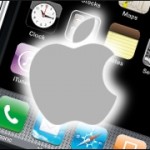 When Apple purged the App Store of all things Google Voice, it revealed about itself what “deKindling” the unauthorized version of Orwell’s “1984” did for Amazon.com. It gives high-visibility to practices that publishers of electronic content and applications like to carry out quietly, over-the-weekend and without recognition or attribution. The impact of such an approach is quite the opposite. It only takes one post in an alpha-blog (like TechCrunch, Slate or even BusinessWeek.com) to raise the ire of the mass of aggrieved parties or chronic complainers.
When Apple purged the App Store of all things Google Voice, it revealed about itself what “deKindling” the unauthorized version of Orwell’s “1984” did for Amazon.com. It gives high-visibility to practices that publishers of electronic content and applications like to carry out quietly, over-the-weekend and without recognition or attribution. The impact of such an approach is quite the opposite. It only takes one post in an alpha-blog (like TechCrunch, Slate or even BusinessWeek.com) to raise the ire of the mass of aggrieved parties or chronic complainers.
 Amazon.com closed a chapter in this saga with a public apology from Jeff Bezos, its founder. I don’t know what the plural of “mea culpa” is (guessing “nostri culpa”), but the following excerpt captures the spirit of his statement:
Amazon.com closed a chapter in this saga with a public apology from Jeff Bezos, its founder. I don’t know what the plural of “mea culpa” is (guessing “nostri culpa”), but the following excerpt captures the spirit of his statement:
Our “solution” to the problem was stupid, thoughtless, and painfully out of line with our principles. It is wholly self-inflicted, and we deserve the criticism we’ve received. We will use the scar tissue from this painful mistake to help make better decisions going forward, ones that match our mission.
Yet, deKindling “1984” was not an isolated incident. It had been routine for Amazon.com to delete unauthorized or pirated titles from Kindle subscribers at its discretion. It is a core capability of Digital Rights Management (DRM) schemes and had been applied to several of Ayn Rand’s titles among others. Giving Orwell’s classic the deKindling treatment crossed a threshold primarily because it was so … Orwellian.
 News about Apple’s snub of Google Voice came hot on the heels of Amazon.com’s high profile departure from its principles. To be clear, the App Store staff’s approval process has long been something of a Black Box. Amid cries from the developer community to keep the process “open”, the best Apple can do is broadly distribute its specifications, access to its APIs and do considerable hand-holding during the development and approval process. From Apple’s point of view, the fact that iPhone owners downloaded more than 1.5 billion apps from the App Store in its first year of operation speaks for itself. Developers, with visions of dollar signs dancing in their heads, include the iPhone as their targeted smartphone and the inventory of apps just keeps growing.
News about Apple’s snub of Google Voice came hot on the heels of Amazon.com’s high profile departure from its principles. To be clear, the App Store staff’s approval process has long been something of a Black Box. Amid cries from the developer community to keep the process “open”, the best Apple can do is broadly distribute its specifications, access to its APIs and do considerable hand-holding during the development and approval process. From Apple’s point of view, the fact that iPhone owners downloaded more than 1.5 billion apps from the App Store in its first year of operation speaks for itself. Developers, with visions of dollar signs dancing in their heads, include the iPhone as their targeted smartphone and the inventory of apps just keeps growing.
Taking GV Mobile and an alternative app called VoiceCentral out of inventory is Apple’s right. I think they will discover that it’s bad policy and establishes a precedent that will have a chilling effect on development and delivery of rich phone applications – meaning ones that can be highly responsive to phone users’ fast-changing needs. TechCrunch blames the Apple/AT&T mind-meld. After all, many users of BlackBerry’s and Android-based phones are already using a native versions of Google Voice and discovering the power (and pratfalls) of advanced call management, voice processing and speech recognition rolled into a single app. iPhone owners are bound to want the same capabilities and my belief is that Apple should comply.
Update: Here’s a link to a “Twitition” urging Apple to “unblock” the Google Voice app for the iPhone. [Caveat: As a rule, I don’t use a service that requires ‘re-entry’ of an existing account name and password]
Categories: Articles

 Getting It Right: What AI Agents Actually Mean for Customer Support (Webinar)
Getting It Right: What AI Agents Actually Mean for Customer Support (Webinar)  Beyond the Basics: How AI Is Transforming B2B Sales at TP
Beyond the Basics: How AI Is Transforming B2B Sales at TP  Five9 Launches Agentic CX: Toward AI Agents That Reason and Act
Five9 Launches Agentic CX: Toward AI Agents That Reason and Act  2025 Conversational AI Intelliview: Decision-Makers Guide to Self-Service & Enterprise Intelligent Assistants
2025 Conversational AI Intelliview: Decision-Makers Guide to Self-Service & Enterprise Intelligent Assistants